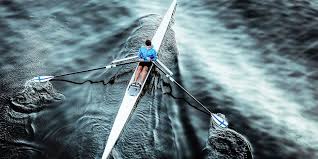Rowing trailer is a crucial component for the transport of rowing equipment. Whether for a local club, school team or professional crew, the right trailer is essential for the safe and efficient transport of boats to regattas and training sessions. In this article, we will explore the key factors to consider when choosing the best rowing trailer for your needs.
Understanding Capacity and Size
The first consideration when selecting a rowing trailer is the capacity and size. It is important to determine the number and size of the boats that will need to be transported. Standard trailers can carry a mixed fleet of eights, fours, pairs, and singles, but it is essential to calculate the total length and weight to ensure the trailer can accommodate your specific requirements.
Material and Construction
When considering a rowing trailer, the material and construction quality are of paramount importance. Aluminium and steel are common materials used in the construction of trailers. Aluminium is lightweight and resistant to corrosion, making it a popular choice for ease of towing and longevity. Steel trailers are typically more robust but require regular maintenance to prevent rust. Look for manufacturers that offer a protective coating to enhance durability.
Suspension and Handling
The suspension system impacts the smoothness of the transport and the protection of your boats. A trailer with a good suspension will absorb shocks from the road better than those without, minimising the risk of damage to sensitive rowing shells during transport. Additionally, a trailer that handles well and is easy to manoeuvre is essential, particularly when accessing tricky launch locations.
Towing Vehicle Compatibility
Your choice of a rowing trailer must take into account the towing capability of the vehicle you intend to use. Ensure the towing vehicle has the appropriate towing capacity for the loaded trailer weight. Additionally, the hitch system must be compatible with the trailer’s configuration. Incompatibility could lead to safety issues or legal complications.
Storage and Accessibility
The design of the trailer should also facilitate easy loading and unloading of rowing shells. Good trailers come with various support structures like racks or stackers that not only secure the shells in transit but also make them simple to access. Look for a trailer that offers flexibility in storage options to cater to different boat lengths and designs.
Licensing and Regulations
Before making a purchase, check the licensing, registration, and road regulations in your region. Depending on where you are, there may be different requirements for lights, brakes, size, and weight limits. Ensuring your rowing trailer meets these regulations is essential to avoid legal issues and promote road safety.
Maintenance and Service
Regular servicing is key to maintaining the trailer’s condition and ensuring the safety of its use. Choose a rowing trailer that has easily accessible parts and, if possible, opt for a brand or supplier that provides good customer service and maintenance support. This would greatly help in keeping your trailer roadworthy for many years to come.
Security Features
Security is another factor to consider. A trailer should have features like locking systems for the hitch and wheels to prevent theft of both the trailer and the valuable boats it carries. Often, adjustable security straps are also available to secure boats during transportation – a worthwhile investment to protect against loss or damage.
Budget Considerations
Like any other substantial investment, the cost of a rowing trailer can vary significantly. Set a realistic budget, but remember that the cheapest option may not always be the best in terms of quality and durability. Weighing the features of various trailers against their price will help ensure a balance between quality and affordability.
Additional Accessories
Depending on your needs, you may want to consider additional accessories like toolboxes, spare tire carriers, or specific boat fixtures and adaptors. Some premium trailers come with these additions standard, while others offer them as optional extras. These accessories can enhance the functionality and utility of the trailer.
Brand Reputation and Reviews
Research is key when selecting your rowing trailer. Look for brands with positive reputations and customer reviews. A reputable brand will typically produce a more reliable and durable product, with better aftercare and warranty provision. Independent reviews and testimonials can also offer valuable insight into how a trailer performs in real-world situations.
Environmental Factors
Consideration of the environment in which you will be towing the trailer is important. Coastal areas with saltwater exposure or regions with extreme temperatures can affect the trailer’s condition over time. Opt for trailers with features suited to your specific environmental conditions, ensuring they are built to withstand the elements they will be regularly exposed to.
Customisation Options
Some manufacturers offer customisation options for their trailers. These might include paint finishes, branding, or specific configurations catered to your club’s needs. While customisation might come at an extra cost, it can be advantageous for matching your trailer to your organisation’s requirements and identity.
Conclusion
Choosing the best rowing trailer requires a thoughtful approach, considering various factors – size, construction, handling, regulations, and more. By thoroughly evaluating your needs and the options available, you can ensure the selection of a trailer that provides safe, secure, and convenient transport of your valuable rowing equipment for years to come.
Making an informed decision will protect your investment in rowing shells and facilitate the logistical demands of transporting them. Take the time to assess your options carefully, consult with experts, and invest in a trailer that will support the growth and mobility of your rowing program.
also read: Enhancing Your Dog’s Mobility: The Benefits of Joint Supplements
